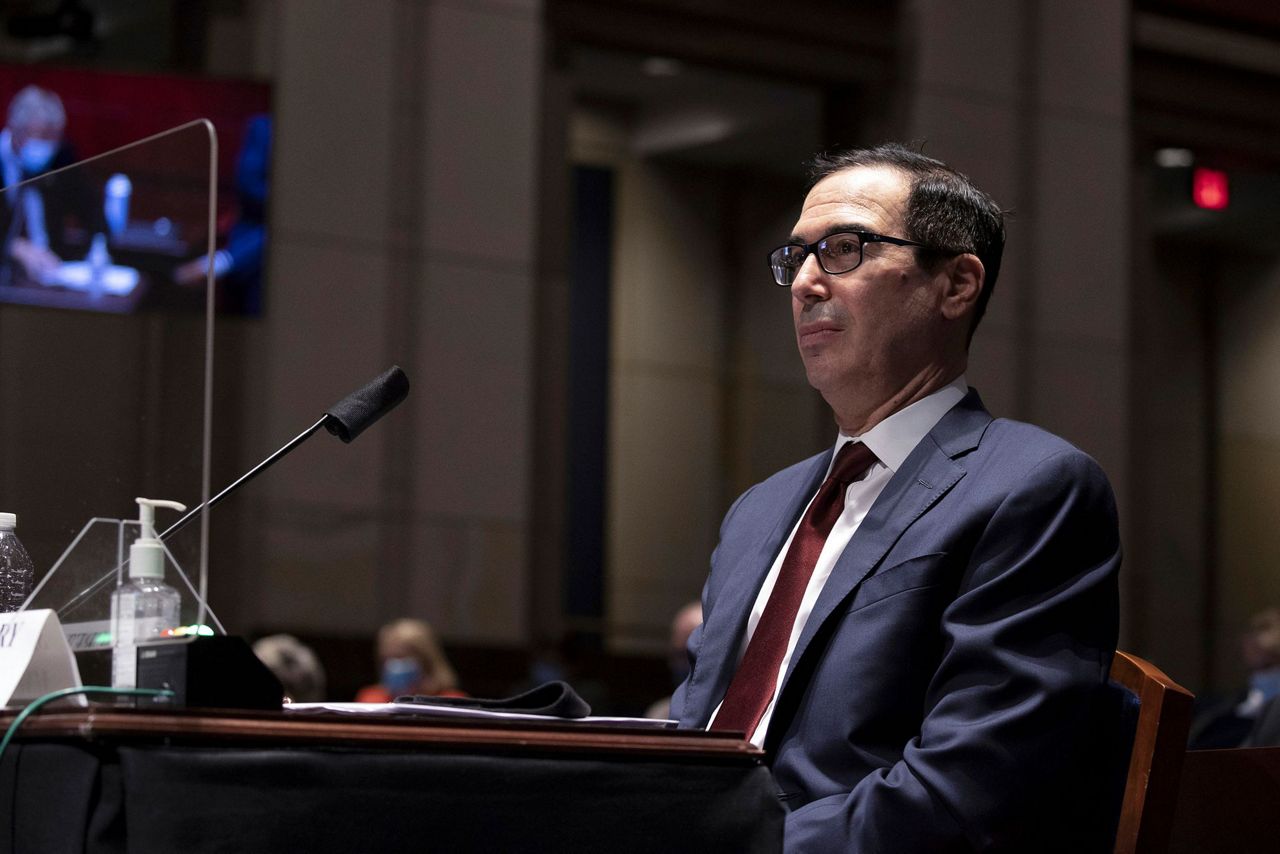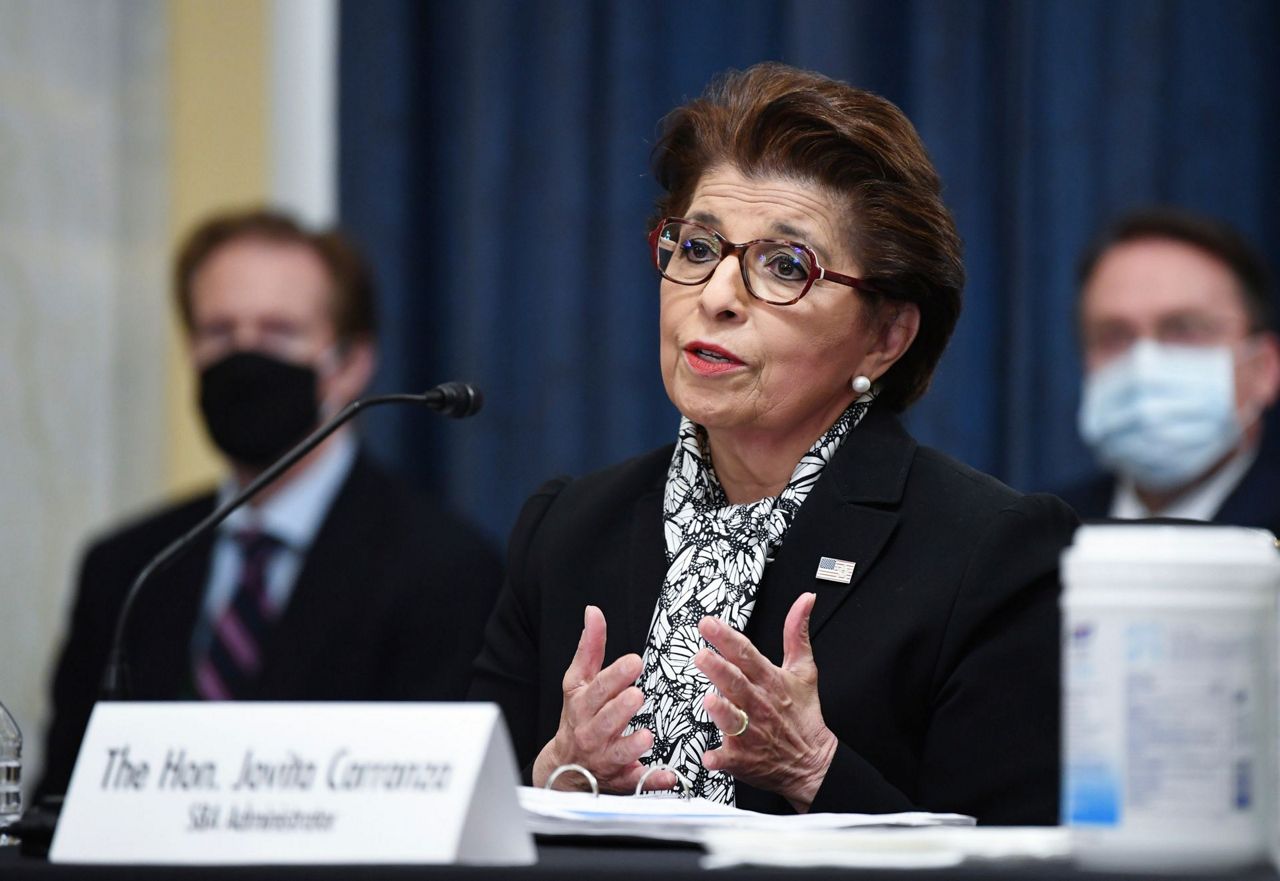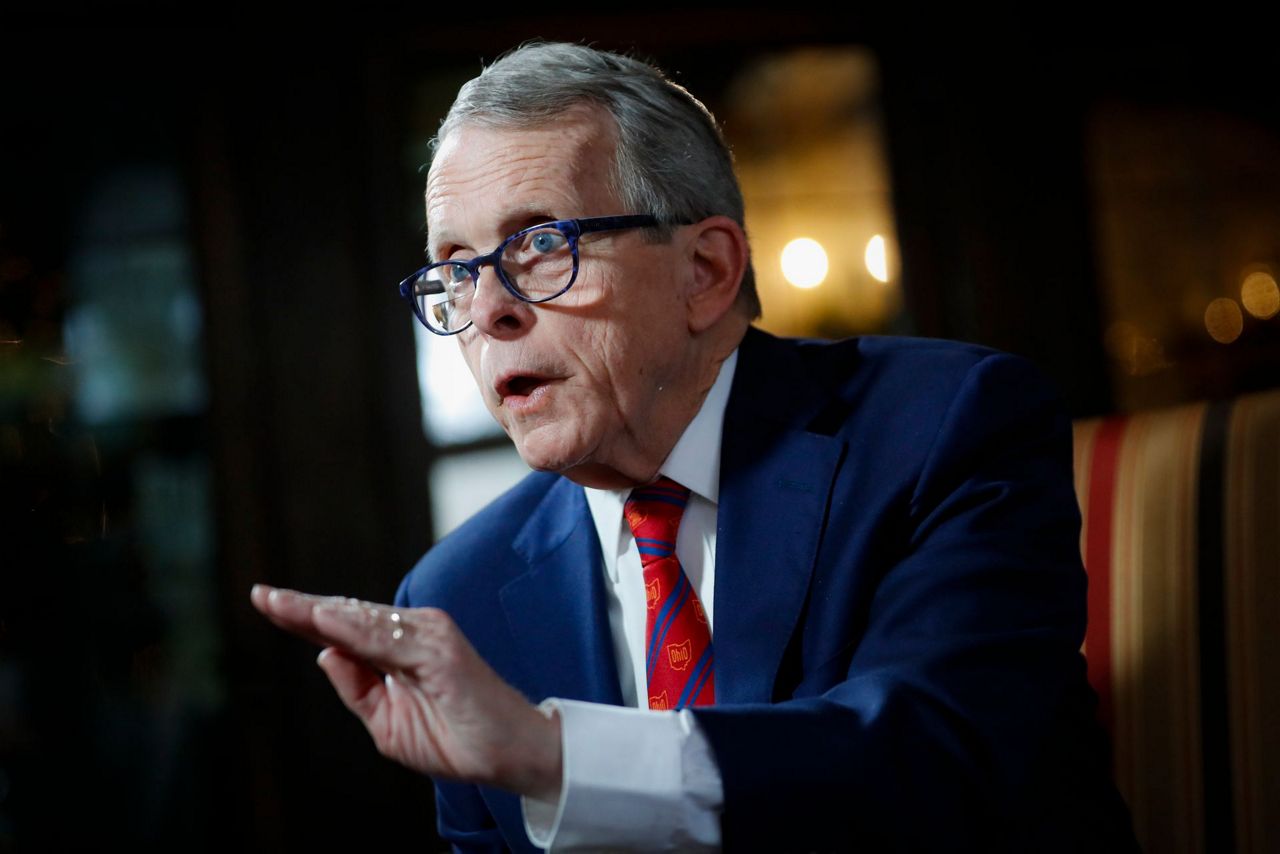NEW YORK (AP) — The Latest on the Treasury decision to identify hundreds of thousands of businesses that received funding through the Paycheck Protection Program, created to preserve jobs at smaller businesses during the coronavirus pandemic:
___
A Northern California-based winery and hospitality company founded by California Gov. Gavin Newsom received a loan worth $150,000 to $350,000 from the Paycheck Protection Program, the federal rescue package aimed to help small businesses during the pandemic.
The company, PlumpJack Management Group, is part of a portfolio of brands that include an idyllic resort hotel near Lake Tahoe, five restaurants and bars, four Napa Valley wineries, a sports retailer and more.
Before taking office as governor in 2019, Newsom announced he would step away from his businesses and put his assets in a blind trust managed by Shyla Hendrickson, a family friend and attorney.
Hendrickson did not return emails from The Associated Press about whether Newsom’s businesses received any loans under $150,000, data the federal government did not release on Monday. Newsom’s office said they would get back to questions, including which jobs benefited from the low-interest loan, which the federal government will forgive if the money is used on payroll, rent and similar expenses. PlumpJack Management Group reported retaining 14 jobs thanks to the loan, which was approved on April 30.
Newsom founded PlumpJack as a wine and spirits shop in San Francisco in 1992. Financial disclosure forms give an imprecise figure on how much Newsom draws from the five companies making up the entire PlumpJack portfolio. For 2019, Newsom reported on annual state financial disclosure forms making at least $200,000.
___
Some of the nation’s most expensive prep schools received loans from a federal rescue package meant to help small businesses during the coronavirus pandemic, according to data released by the Treasury Department on Monday.
Wealthy private schools receiving loans included Connecticut’s Choate Rosemary Hall, which charges up to $62,000 for tuition and has an endowment of more than $370 million. The school’s foundation received between $5 million and $10 million in federal loans.
New York’s Collegiate School received between $2 million and $5 million in loans. The school charges $56,000 a year in tuition and has an endowment of more than $120 million.
Other wealthy schools receiving loans include Pennsylvania’s Church Farm School, New York’s Poly Prep Country Day School and California’s Nueva School.
Loans also went to several schools tied to the children of top elected officials. At least $2 million went to St. Andrew’s Episcopal School in Maryland, where President Donald Trump’s son Barron son goes to school. At least $5 million went to the Sidwell Friends School in Washington, whose notable alumni include Sasha and Malia Obama and Chelsea Clinton.
Treasury Secretary Steven Mnuchin said in May that wealthy private schools should not accept loans through the program.
Private schools are also eligible for a share of federal coronavirus relief funding that went to the nation’s schools, but the Education Department has urged wealthy schools to reject it.
___
The restaurant industry has been particularly hard hit during the pandemic and unsurprisingly many took advantage of the government's Paycheck Protection Program intended to preserve jobs.
M Crowd Restaurant Group, which owns 27 Texas restaurants including the Mi Cocina chain, received between $5 million and $10 million. Ray Washburne, one of the company’s founders, was vice chairman of the Trump Victory Committee in 2016 and donated $100,000 to the PAC last August.
Peter Luger, a famed New York steakhouse chain with locations in Brooklyn and Long Island, received between $2 million and $5 million. A message was left with the company seeking comment Monday.
____
West Virginia Gov. Jim Justice’s family companies received at least $6.3 million from a federal rescue package meant to help small businesses hold off on layoffs during the coronavirus pandemic.
Justice, a Republican, is considered to be West Virginia’s richest man through ownership of dozens of coal and agricultural businesses, many of which have been sued for unpaid debts. At least six Justice family businesses received the Paycheck Protection Program loans, including The Greenbrier Sporting Club, an exclusive members-only club attached to a lavish resort Justice owns called The Greenbrier.
The aid package is the centerpiece of the federal government’s plan to rescue an economy devastated by shutdowns and uncertainty. The data released by the Treasury Department presents the fullest accounting of the program thus far.
Justice, a billionaire, acknowledged last week that his private companies received money from the program but said he did not know specific dollar amounts. A representative for the governor’s family companies did not immediately return emails seeking comment.
____
Muy Brands Inc., a San Antonio, Texas, franchisee with more than 750 Wendy’s, Taco Bell and Pizza Hut restaurants, received between $15 million and $30 million through the Paycheck Protection Program.
The program was put into place to preserve jobs at smaller businesses.
CEO James Bodenstedt is also a major donor to President Trump. He has given $300,000 to the Trump Victory PAC since the start of this year, according to federal campaign finance records. A message seeking comment was left with Muy Brands.
____
Roughly 120 payday lenders and auto title lenders took loans from the Paycheck Protection Program. Most took out smaller loans, typically less than $350,000. These types of businesses typically lend money to poor and disaffected individuals in desperate need for cash, often at high interest rates.
Online lenders which often offer to consolidate loans in return for high fees also took government loans. Avant, Prosper Marketplace and Upstart were among them.
Creditcorp, a high interest-rate lender and debt collector, took out a loan of between $5 million and $10 million loan.
____
Nearly 600 portfolio management companies and private equity firms took money from the PPP program.
Private equity firms and portfolio managers were not an industry heavily impacted by the coronavirus pandemic. Their employees were largely able to keep working, and they were not industries that had to be shut down by state or local government orders. Investment managers and private equity firms also tend to be extremely well paid positions.
According to the data, those 583 companies reported saving roughly 14,800 jobs collectively with the funds from the program. That’a an average of 25 employees per company.
Rosenblatt Securites, one of the biggest names on the floor of the NYSE, took out a $1-$2 million loan.
___
Some familiar political names are showing up in data revealing who received funding for businesses during the outbreak.
Waterville Valley Holdings, an investment group led by the family of New Hampshire Gov. Chris Sununu, got a loan of between $350,000 and $1 million. The company is the principal investor in the Waterville Valley Resort, a ski area where Sununu, a Republican, served as CEO until just before he took office in 2017.
Robin J. Vos Enterprises, a popcorn manufacturing company run by Wisconsin Assembly Speaker Robin Vos received between $150,000 and $350,000. Vos is a Republican.
Vos’ spokeswoman, Kit Beyer, didn’t immediately respond to a message inquiring about why the company was seeking the money and how it’s been used.
___
A company owned by Ohio Gov. Mike DeWine is among those that received loans from a $600 billion-plus coronavirus aid program.
Data released Monday shows DeWine Seeds-Silver Dollar Baseball received a loan under the Small Business Administration’s Paycheck Protection Program for a range of $150,000 to $350,000. The company owns the Asheville Tourists, a minor league baseball team in North Carolina, which was purchased by the governor’s family in 2010. DeWine’s son, Brian DeWine, is the president of the baseball team.
___
The Treasury Department released the names of more than 700,000 companies that received funds from the government’s small business lending program.
That program was put into place to support businesses as states shut down in April to contain the coronavirus outbreak. The Treasury to date had identified just a fraction of all borrowers, naming only those companies that received more than $150,000.
But those firms made up less than 15% of the nearly 5 million small companies that received loans.
Copyright 2020 The Associated Press. All rights reserved. This material may not be published, broadcast, rewritten or redistributed without permission.





